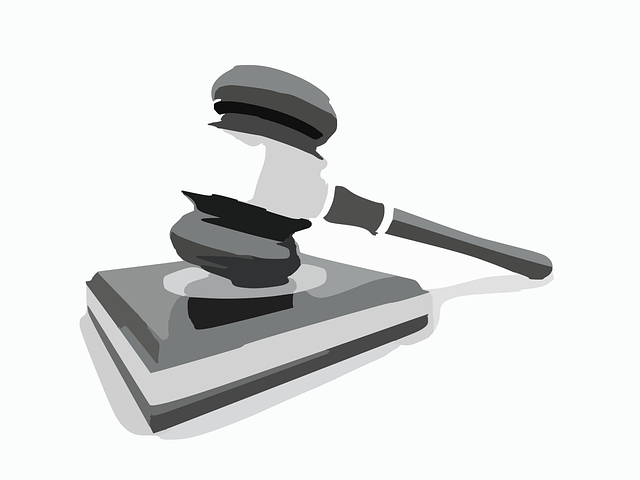The Impact of Antitrust Laws on Small Businesses in healthcare is significant, ensuring fair competition and protecting consumers through prohibitions on price fixing and exclusive dealing. These laws provide small businesses with legal protections against larger corporations, fostering a level playing field. By adhering to antitrust regulations, small healthcare providers can build strong patient relationships, enhance their reputation, avoid legal issues, and position themselves as trusted community entities in the digital age. Case studies, such as pharmacy vs. pharmaceutical company disputes, demonstrate the practical application of these laws in safeguarding smaller enterprises and promoting consumer choice.
In the intricate landscape of healthcare, understanding antitrust laws is paramount for maintaining a competitive and ethical market. This article delves into the impact of these regulations, focusing specifically on their effect on small healthcare businesses. We explore how antitrust laws, though crucial for fairness, can pose challenges for smaller entities. By examining real-world case studies, we offer insights into navigating legal complexities, highlighting opportunities for growth while mitigating potential risks for startups and established small practices alike.
- Understanding Antitrust Laws: Basics and Relevance in Healthcare
- The Impact on Small Healthcare Businesses: Challenges and Opportunities
- Key Considerations for Compliance and Mitigating Legal Risks
- Case Studies: Real-World Examples of Antitrust Law Applications in Healthcare
Understanding Antitrust Laws: Basics and Relevance in Healthcare

Antitrust laws are a crucial aspect of healthcare regulations, ensuring fair competition and preventing monopolies within the industry. These laws have a significant impact, especially on small businesses operating in the healthcare sector. The primary objective is to promote market efficiency by restricting anti-competitive practices such as price fixing, market division, and exclusive dealing. In healthcare, where access to services and medications is vital, antitrust regulations ensure that consumers receive fair prices and quality care without being restricted to a single provider.
The relevance of antitrust laws in healthcare becomes evident when considering the potential consequences for small businesses. Across the country, these laws protect patients’ rights by preventing healthcare providers from abusing their market power. This is particularly important for small businesses as they often face challenges when competing against larger corporations. In cases where a small business engages in anti-competitive behavior, it may face legal repercussions, including jury trials and even a complete dismissal of all charges, ensuring a level playing field for all participants in the healthcare market.
The Impact on Small Healthcare Businesses: Challenges and Opportunities

Small healthcare businesses often find themselves navigating a complex legal landscape, with antitrust laws presenting both significant challenges and potential opportunities. The Impact of Antitrust Laws on Small Practices can be profound, as these regulations are designed to promote fair competition and prevent monopolies within industries. For his clients, this means understanding intricate rules regarding pricing, referrals, and collaborations, which may restrict certain business strategies. However, the same laws also offer a chance for differentiation; small practices can carve out unique niches, foster strong patient relationships, and build local communities, thereby avoiding the pitfalls of indictment for antitrust violations.
By adhering to these regulations and focusing on personalized care, small healthcare businesses can enhance their reputation and foster trust with their patient base. This approach not only helps in steering clear of legal troubles but also positions them as integral, community-focused providers. Such strategies can be particularly effective in today’s digital age, where patients are increasingly conscious of their choices and seek transparent, personalized healthcare options.
Key Considerations for Compliance and Mitigating Legal Risks

Navigating healthcare legal issues requires a keen understanding of various regulations, especially antitrust laws. For small businesses operating in this sector, compliance can be a complex task. The Impact of Antitrust Laws on Small Businesses is significant, as these laws are designed to prevent price-fixing and restrictive practices that could harm consumers and corporate and individual clients alike. By adhering to fair competition principles, healthcare providers can mitigate legal risks and maintain their integrity across the country.
To ensure compliance, businesses must carefully analyze their pricing strategies, partnerships, and marketing tactics. Avoiding indictment involves transparency in transactions, fostering open communication with stakeholders, and staying updated on evolving legal frameworks. Effective internal controls, regular audits, and seeking legal counsel when necessary are pivotal steps in protecting against potential legal pitfalls, thereby safeguarding the business’s reputation and financial health.
Case Studies: Real-World Examples of Antitrust Law Applications in Healthcare

In the healthcare industry, antitrust laws play a pivotal role in maintaining fair competition and ensuring access to quality medical services for all. Case studies provide tangible examples of how these laws are applied in real-world scenarios. For instance, consider a recent case where a small, local pharmacy challenged a large pharmaceutical company’s dominant position in the market. The pharmacy alleged that the larger entity was engaging in anti-competitive practices, such as price fixing and market division, which hindered their ability to compete effectively. This led to a detailed investigation by antitrust authorities, resulting in a winning challenging defense verdict for the small business.
This victory highlighted the impact of antitrust laws on protecting small businesses in healthcare. The general criminal defense strategy focused on demonstrating the harm caused by the alleged anti-competitive behaviors and how it affected the local market dynamics. As a result, the case set a precedent, ensuring that larger corporations cannot abuse their market power to stifle competition from smaller, independent businesses. This approach not only safeguards small enterprises but also fosters innovation and consumer choice within the healthcare sector.
The impact of antitrust laws, particularly on small healthcare businesses, highlights a delicate balance between fostering competition and ensuring equitable access to quality care. While these laws can present challenges, they also offer opportunities for innovation and growth. By understanding the basics of antitrust principles and navigating key considerations for compliance, small healthcare providers can mitigate legal risks and thrive in a competitive yet regulated landscape. The real-world case studies presented in this article serve as valuable insights into how healthcare entities can successfully navigate these legal issues and contribute to a robust healthcare ecosystem.






